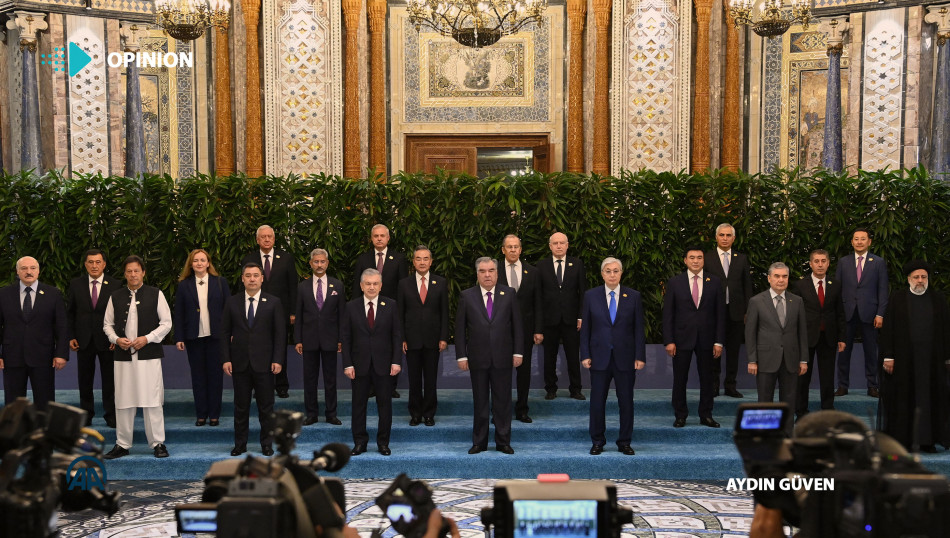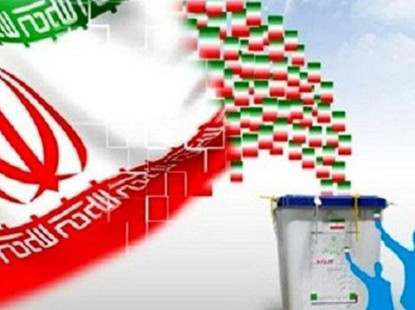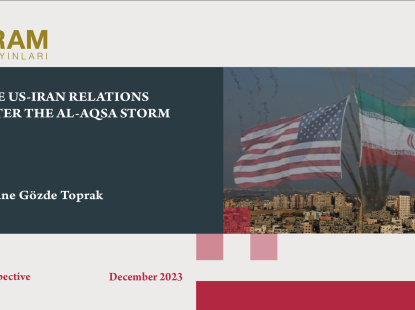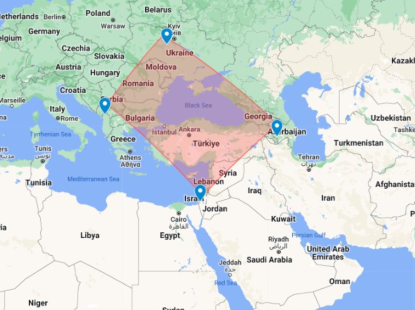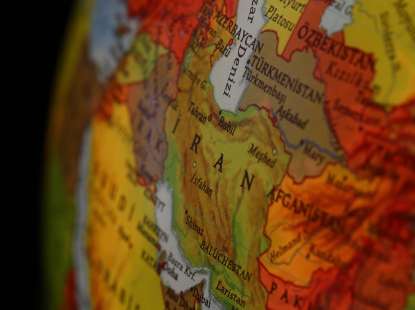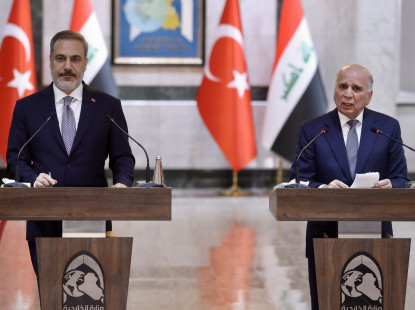Iran’s Membership of Shanghai Cooperation Organization: Expectations and Possible Scenarios
After holding observer status for the past fifteen years at the Shanghai Cooperation Organization (SCO) in political uncertainty, Iran announced it had been accepted as the full member of the organisation at the 21st SCO summit held in Dushanbe Tajikistan’s capital on September 16-17. In the evaluations made months before the summit, the statements that Iran could become a member of the Organization at the 21st summit of the SCO were seen as an important step in Tehran's "Look to the East" policy. As a matter of fact, Iran's full membership to the SCO, which has faced significant economic difficulties due to Western embargoes in recent years, has become a perceived necessity for its foreign policy goals. Iranian President Ibrahim Raisi's statement at his first press conference that, unlike his predecessor, Iran’s foreign policy would not be limited to the Nuclear Deal and his rhetoric to increase cooperation with major economic powers such as China and India fuelled speculation that Iranian foreign policy would be eastern-oriented in the upcoming period.
In this context, Raisi made his first foreign visit as president to Dushanbe on September 16, upon the official invitation of the President of Tajikistan to attend the SCO summit. During his visit, Raisi held several meetings on increasing bilateral political and economic cooperation with the SCO states, the main topic of the talks was Iran's membership in the organization.
Iran's SCO Membership Process
After becoming an observer member of the SCO in 2005, Iran applied for full membership to the organization in 2008 and 2015, but both applications were dismisseded for various reasons. The first application was made in 2008 and was dismissed on the grounds that Iran was within the scope of the sanctions under Chapter 7 of the UN Charter. Tehran applied for the second time for full membership in 2015. The signing of the Nuclear Deal between Iran and the P5+1 countries in 2015 and the subsequent lifting of international sanctions against Iran paved the way for Tehran to reapply for full membership. However, this application was also rejected by the Dushanbe government over Tehran’s support for Tajikistan Islamic Movement. As of this date, the rising tension between Tehran and Washington and Iran's exposure to new sanctions during the Trump era were the main factors that prevented the country from applying for full membership to the SCO.
It was stated that the removal of UN sanctions in the wake of the JCPOA in 2015 means that one of the obstacles to the country's SCO membership has been eliminated. The aforementioned obstacles have also been said to be removed. On August 11, 2021, the Secretary of Iran’s Supreme National Security Council, Ali Shamkhani, said in a statement after a phone call with Russian Security Council Secretary Nikolay Patrushev that countries such as Tajikistan and Turkmenistan, which oppose Iran's membership, have overcome their reservations. Shamkhani announced the problems that emerged in his country’s previous applications have been resolved and that there remain no other political impediments to Iran's membership in the SCO. Moreover, the participation of Tajikistan’s parliament speaker in Iran’s presidential inauguration ceremony and face-to-face meeting with Raisi was considered as an indication that the political problems between the two countries had been resolved.
With such a conducive environment, Raisi and the accompanying delegation attended the 21st SCO summit and obtained approval from member states. Announcing that Iran became a member of the SCO, Ebrahim Raisi stated that, “Let me express my satisfaction for attending this important and influential meeting which is one of the few opportunities for dialogue to ensure real peace and cooperation at the regional level, and I sincerely thank all the esteemed members for the permanent membership of Islamic Iran”. While the term "process", which was mentioned by other member states, was not included in the speeches of Raisi, he mostly stressed expectations that Iran would increase its cooperation with the member states due to its strategic location.
On the other hand, different statements emerged about whether Iran is a member of the Organization or whether the membership process has begun. While the statement made by Iran is that the country became a member, statements from countries such as China and Russia indicate that Iran's membership process to the Organization has begun. President of China, Xi Jinping, stated, “as of today, we are starting the necessary process of admitting Iran as a full member”. A similar statement came from Russian President Vladimir Putin as well. "Russia supports the decision on launching the procedure of granting SCO membership to the Islamic Republic of Iran," Putin said and indicated there is a certain procedural process before the country becomes a member. The Prime Minister of Pakistan, Imran Khan, noted that “Iran embarks upon the process of admission to SCO as a full member”. When we look at the statements that came from China and Russia, it is apparent Iran’s full membership to the Organization will take place after a certain period. This period is likely to be similar to that of India and Pakistan. As a matter of fact, the SCO approved the membership bids of India and Pakistan in Ufa in 2015, but both countries gained full membership at the summit in Astana in 2017. On the other hand, uncertainties regarding the membership procedures of the organization, which Iran must follow to obtain full membership, remain there. It is also unclear that if Iran will live through the same process as India and Pakistan went through. Those ambiguities will be clarified in the upcoming period.
The Advantages and Disadvantages of Iran’s Full Membership in SCO
Iran has high expectations in gaining SCO full membership. First, Iran seeks to join Eurasian economic and security institutions in hopes of easing the pressure of US sanctions and possibly creating new channels for a "diplomatic show off" against the US. In fact, in his statement at the SCO summit, Ebrahim Raisi hailed it as a diplomatic success by saying, “The world has entered a new era, hegemony and unilateralism are declining.” On the other hand, according to the criteria SCO has adopted earlier, an aspiring member state “should have no sanctions imposed on it by the UN Security Council”. When evaluated in this context, the SCO's acceptance of Iran as a full member; means that Iran is subject to unilateral sanctions and that SCO members do not recognize these sanctions as international sanctions. According to the experts, this attitude supports Iran's statements in the international arena and leads to questioning the legitimacy of US sanctions. On the other hand, Iran's membership may be effective in improving Tehran's relations with other member states. Although Russia and China are key members of the Organization, Iran and other member states have areas of common interests. Given the realities of the international political economy and the conflicting agendas of the member states, being a member of the SCO will not bolster Iran to a considerable extent in the international system. In particular, the abundance of conflict areas among member states (the various security priorities and tensions between the members intensified, especially with the membership of India and Pakistan to the Organization in 2017) shows that the SCO functions more like a diplomatic forum than a security bloc. Since so many conflicts between the member states exist, it may force Tehran to take a side even on issues that are not of particular concern to itself. Ultimately, full membership can disrupt the policy of Look to the East.
Iran hopes to gain great economic benefits from the SCO as well. The presence of both two of the world’s largest markets, China and India, and Central Asian countries with which Iran thinks it shares common values are considered as an opportunity by Iran to increase its commercial relations with its member states. However, it should be noted that the SCO is not a regional community with a focus on trade and the economy. When we examine the SCO Charter, it is seen that the primary goal of the Organization is to neutralize the common threats to the national security and territorial integrity of the member states arising from terrorism, separatist and radical movements. Although Iran views the Organization from the economic lenses and has a substantial financial expectation, those expectations may fall short. Since there is no "free trade zone" between member countries, it would not be realistic to expect economic expectations to be realized in this system. For example, Russia opposes China's proposals to create a free trade zone among SCO members due to the fear of losing its influence on member states. This situation seems to contradict Tehran's expectations.
Full membership will differ from having observer status as it may require making commitments and taking a formal position in the Organization's decision-making processes. Therefore, Iran may be stuck between the countries in question, as it does not share the main concerns of its members, which have border problems and regional power competition among the majority, primarily Russia and China. For example, Iran, as a member of the SCO, might be expected to express its stance towards India's territorial disputes with China and Pakistan, a matter that is not of particular concern to itself. This situation also seems to contradict Tehran's expectations.
To conclude, by becoming a member of the SCO, Iran may have a chance to solve regional problems together with other countries; however, it does not mean that Tehran can strongly influence the Organization or its policies. Although Iran has the chance to avoid political isolation by becoming a member of the Organization, the relations of the member states with the USA also restrain this situation. It is also possible that the ongoing nuclear negotiations between Tehran and Washington will not yield results and Iran continues its nuclear pursuits can result in the return of UN sanctions against Iran. In this scenario, it is possible that the membership process will take longer than expected.
